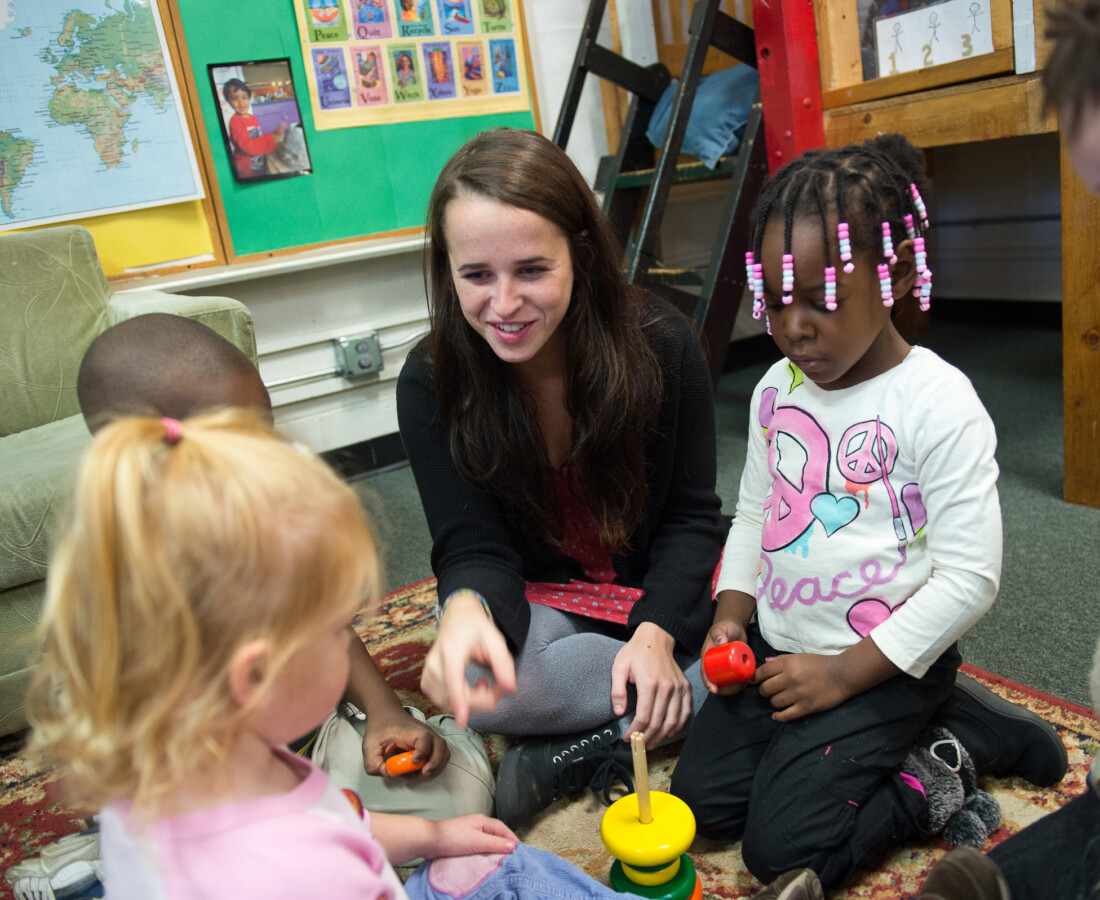By Philip Lanoue, Ph.D.
UVM Alumnus, Superintendent of Clarke County School District
Having grown up in Vermont and experiencing public education both at the K-12 level — and with a bachelor’s degree and master’s degree from the University of Vermont — I can say, without reservation, that these experiences helped me to develop as a person, teacher, and leader.
 In addition to parents, my teachers, principals, and professors believed in me, which formed the most permanent foundation for my success. I still cherish the support of all of those individuals throughout my life, and ground my work today to ensure all students in our school district have that same support and confidence to achieve at the highest level.
In addition to parents, my teachers, principals, and professors believed in me, which formed the most permanent foundation for my success. I still cherish the support of all of those individuals throughout my life, and ground my work today to ensure all students in our school district have that same support and confidence to achieve at the highest level.
Recently, I had the opportunity to return to UVM, which brought back memories of classes at the Waterman Building, student teaching at Burlington High School, and preparing to become a school leader through a master’s program while I was teaching at Milton High School.
Upon reflection, I can look back and recall that teaching concepts felt somewhat abstract, and the leadership models felt disjointed from the day-to-day demands of a principal or assistant principal. Now, I can look back and appreciate how my education and real world practice came together to fully shape my beliefs about teaching and leadership. The theories and practical application were both crucial.
Early in my career, I was completely unaware of student achievement gaps and thought everyone had equal access to an education. I believed that all students came to school with the same experiences and tools to be successful.
I have completely changed on this notion that I used to have about equal access.
Education Must Continue to Evolve
When the No Child Left Behind Act was implemented, I first began to understand how new accountability systems highlighted student groups who were marginalized by the system and who were not performing. I learned about inequities in the type of supports and the varied experiences that students brought to school — and how schools needed to be prepared to respond. I began to realize that we must employ focused instructional practices that supported the needs of all students. Most importantly, I learned how crucial the role of teachers and school leaders is in being the strongest advocates for children.
In my district leadership roles, I have experienced firsthand the importance of principals being the instructional leaders of the school. As a result, I have found a level of resolve in building leadership capacity in new and experienced leaders to ensure processes are monitored, and performance data is analyzed to identify successes and growth areas in every school.
In the end, the ability to be systemic in my approach was paramount for the success of all students in the district. In reflection about my journey, I would have never imagined that, after 37 years, my view of our work as teachers and leaders would change — but it has.
All my experiences as an educator shaped me: from Vermont to suburban Massachusetts to urban and economically disadvantaged districts in Atlanta — and now Athens, Ga. — have led me to believe that we must always be in a state of change. This is the only way we can meet the needs of schools, teachers, parents, communities, and most importantly, children.
The Need for Change
Why does our work in schools need to change? First, the world in which our students live is ever-changing and is less equal than ever before, requiring our work to be more personalized. Second, student expectations by teachers and school leaders must translate to equity in access and high performance. We cannot teach the same way or lead the same way in today’s world.
Unlike most university communities, Athens-Clarke County, home to my school district — the Clarke County School District — and the University of Georgia, has the third highest poverty rate among U.S. counties with populations between 65,000 and 249,000. In Clarke County, 82 percent qualify for free or reduced hot lunch, 49 percent live in single-parent homes, and 19 percent of adults who are 25 years or older did not complete high school. These are all significant risk factors that could be detractors for academic success.
Despite these factors, our work today is grounded in an unwavering commitment to the success of every student by all members in the district, a non-negotiable focus on implementing effective instructional practices through common planning and clear targets centered on performance with the highest level of accountability — all critical to our district’s success. While student learning is central to our work, accountability is essential in the processes required for implementing and monitoring student progress.
But our work is and must be personal as every data point has a face.
‘Accountability is More than a Test Score’
There are camps that advocate for accountability and there are camps that advocate against accountability. Each group brings its own set of beliefs and values. My belief is that accountability can be good, as we owe our students the best possible education and that includes personalizing learning as a means to keeping students engaged in their own learning for the future.
Today, teachers and school leaders must reflect on their practices and ask themselves two questions when looking at their students:
Whom do I see? Do I have the same aspirations for them regardless of the way they look or their background?
In our district we have been clear that to have the same high expectations, we must engage in the use of high-performance practices and use these practices with fidelity.
We have built supports for teachers and school leaders so that they can have the conversations needed to move the instructional program in a way that engages students by setting high expectations –not accepting race or class as an excuse for lack of success and involving parents, community members, including the University of Georgia and other institutions in partnerships.
I do know that our improvements and performance results are inextricably grounded to the absolute shifts in the beliefs we now hold about the success of our students, and the beliefs we now hold about our responsibilities as educators. I do know that our successes are a result of the dedication and talents of our teachers and leaders in inspiring students, as well as the commitment by our Board of Education, parents, and the members of our community who have confidence that this work could be done.
Accountability is more than a test score, it is about monitoring and evaluating all processes required for every student to achieve at the highest level. In this time of increased accountability, it is also very important to remind ourselves that as educators, our ultimate goal is to take all of our students to a place they did not think they could be.
Achieving the Right Results
Here in Clarke County, our community has experienced a complete shift: together, we believe in all of our students, and we are unwavering in our dedication to ensuring all students receive the supports they need to achieve. The right work equals the right results, and we, like educators across our great nation, are committed to our students and ensuring their successful futures.
Philip Lanoue is the 2015 National Superintendent of the Year and 2015 Georgia Superintendent of the Year. Read more about Dr. Lanoue’s award on UVM Today.





